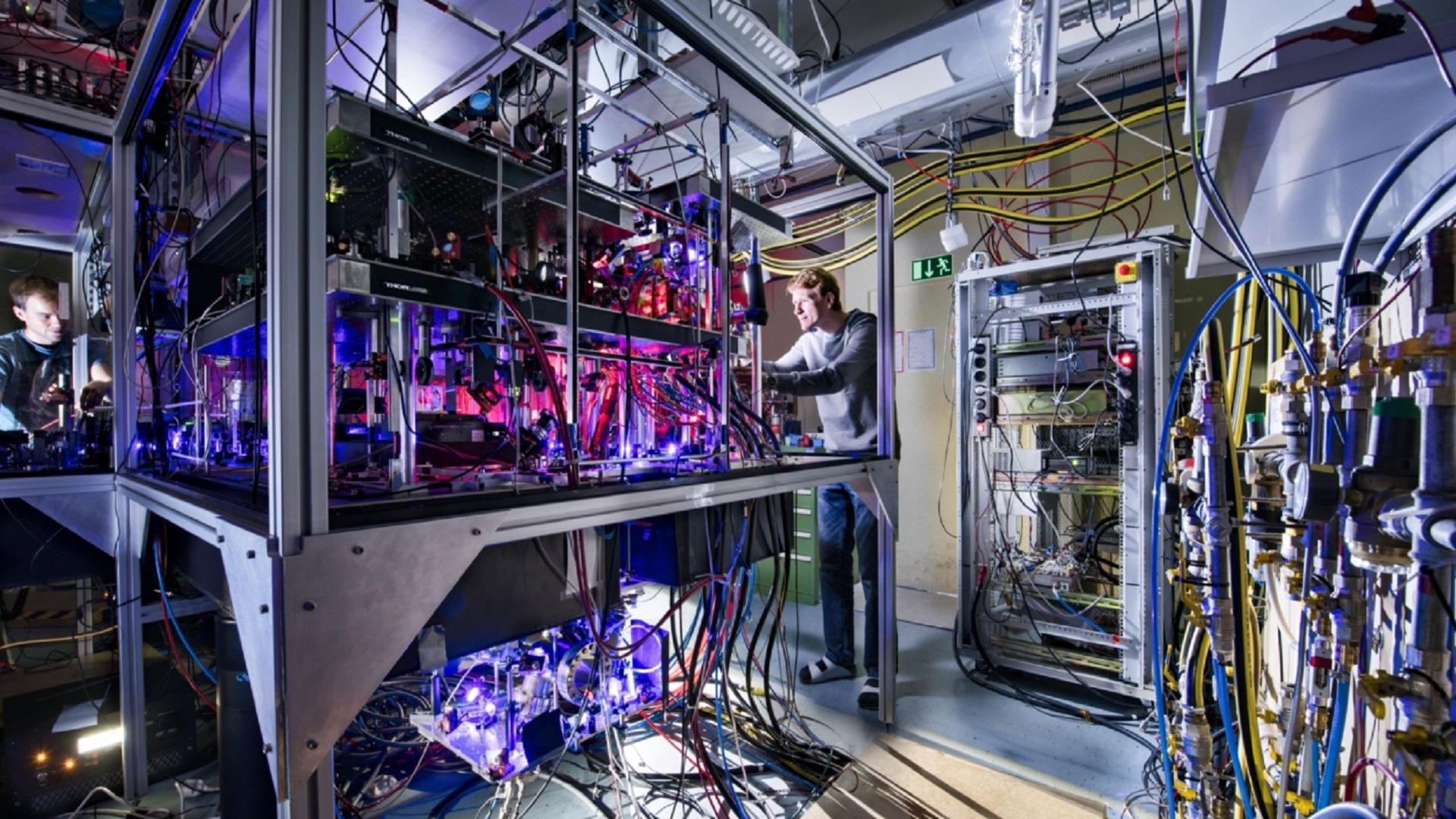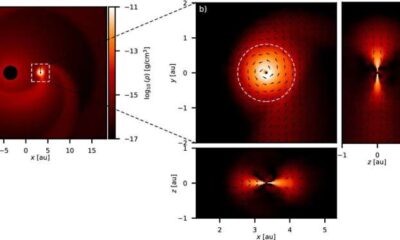Science
German Scientists Redefine Thermodynamics with Quantum Breakthrough

A team of researchers at the University of Stuttgart, Germany, has made a groundbreaking discovery that challenges a fundamental principle of physics established over 200 years ago. Led by Eric Lutz, PhD, and Milton Aguilar, PhD, the scientists have shown that the Carnot principle, a cornerstone of thermodynamics, does not apply in the same way to quantum systems. Their findings suggest that atomic-scale machines can operate with efficiencies that exceed those defined by this long-standing law.
The Carnot principle, formulated by French physicist Nicolas Léonard Sadi Carnot in 1824, stipulates that no heat engine operating between two thermal reservoirs can exceed the efficiency of a reversible heat engine. This principle has been a guiding framework for understanding thermodynamic systems involving macroscopic objects, such as steam turbines. However, the new research indicates that this principle must be revised when applied to the quantum realm.
Breaking Established Limits
According to Lutz and Aguilar, Carnot’s findings were primarily focused on large-scale systems. They assert that the principle’s limitations become apparent when examining smaller, quantum-scale systems. “While Carnot demonstrated that a greater temperature difference leads to higher efficiency, this principle overlooks the effects of quantum correlations,” they explained. This insight led the researchers to explore the behavior of quantum particles that can become entangled and interact in ways that defy classical physics.
Their research reveals that when particles are correlated, thermal machines operating at the atomic scale can convert not only heat but also these quantum correlations into usable work. As a result, the efficiency of quantum engines can surpass the conventional Carnot limit. “These are special bonds that form between particles on a very small scale,” they added. “For the first time, we have derived generalized laws of thermodynamics that fully account for these correlations.”
Future Implications for Technology
The implications of this research extend beyond theoretical physics. The findings pave the way for the development of ultra-efficient quantum engines and nanotechnology. “Tiny motors, no larger than a single atom, could become a reality in the future,” Lutz noted in a press release. He emphasized that these quantum engines could perform tasks with greater efficiency than their larger counterparts.
The study, titled “Correlated quantum machines beyond the standard second law,” published in the journal Science Advances, outlines how improved understanding of quantum mechanics at the atomic level can lead to practical applications. The researchers believe that as scientists gain deeper insights into these physical laws, they will be able to harness them to create advanced technologies.
“Perhaps one day, such motors will power medical nanobots or control machines that process materials at the atomic level,” Lutz and Aguilar concluded. “The potential applications are enormously diverse.” Their work not only challenges established scientific norms but also opens new avenues for innovation in fields ranging from medicine to materials science.
-

 Health2 months ago
Health2 months agoNew Gel Offers Hope for Regrowing Tooth Enamel in Dentistry
-

 Science2 months ago
Science2 months agoUniversity of Hawaiʻi at Mānoa Joins $25.6M AI Initiative for Disaster Monitoring
-

 Science1 month ago
Science1 month agoALMA Discovers Companion Orbiting Red Giant Star π 1 Gruis
-

 Lifestyle1 month ago
Lifestyle1 month agoPark Jung Min’s Endearing Moment with Hwasa Steals Show at Awards
-

 Science2 months ago
Science2 months agoIROS 2025 to Showcase Cutting-Edge Robotics Innovations in China
-

 Lifestyle2 months ago
Lifestyle2 months agoStone Island’s Logo Worn by Extremists Sparks Brand Dilemma
-

 Lifestyle2 months ago
Lifestyle2 months agoSampson County Celebrates Susie Faison’s 100th Birthday Milestone
-

 Lifestyle2 months ago
Lifestyle2 months agoMary Morgan Jackson Crowned Little Miss National Peanut Festival 2025
-

 Health2 months ago
Health2 months agoStartup Liberate Bio Secures $31 Million for Next-Gen Therapies
-

 Health2 months ago
Health2 months agoTop Hyaluronic Acid Serums for Radiant Skin in 2025
-

 Science2 months ago
Science2 months agoArizona State University Transforms Programming Education Approach
-

 Politics2 months ago
Politics2 months agoJudge Considers Dismissal of Chelsea Housing Case Citing AI Flaws









